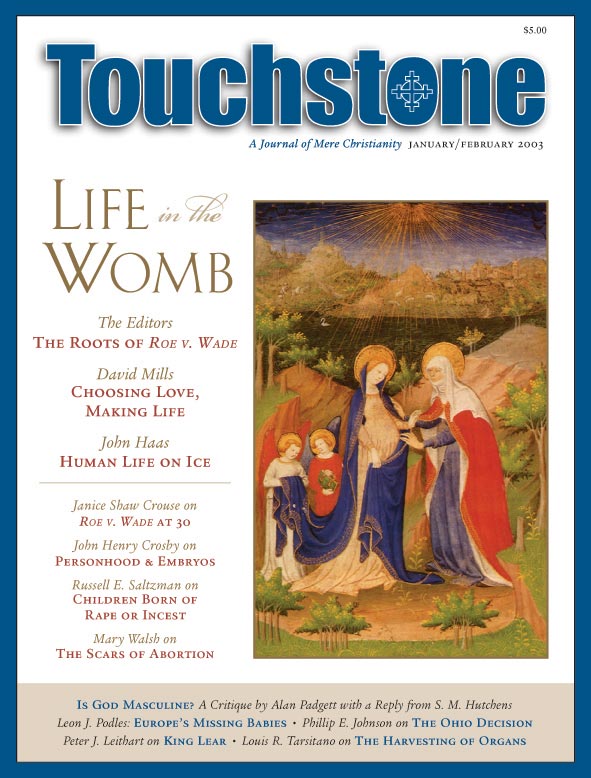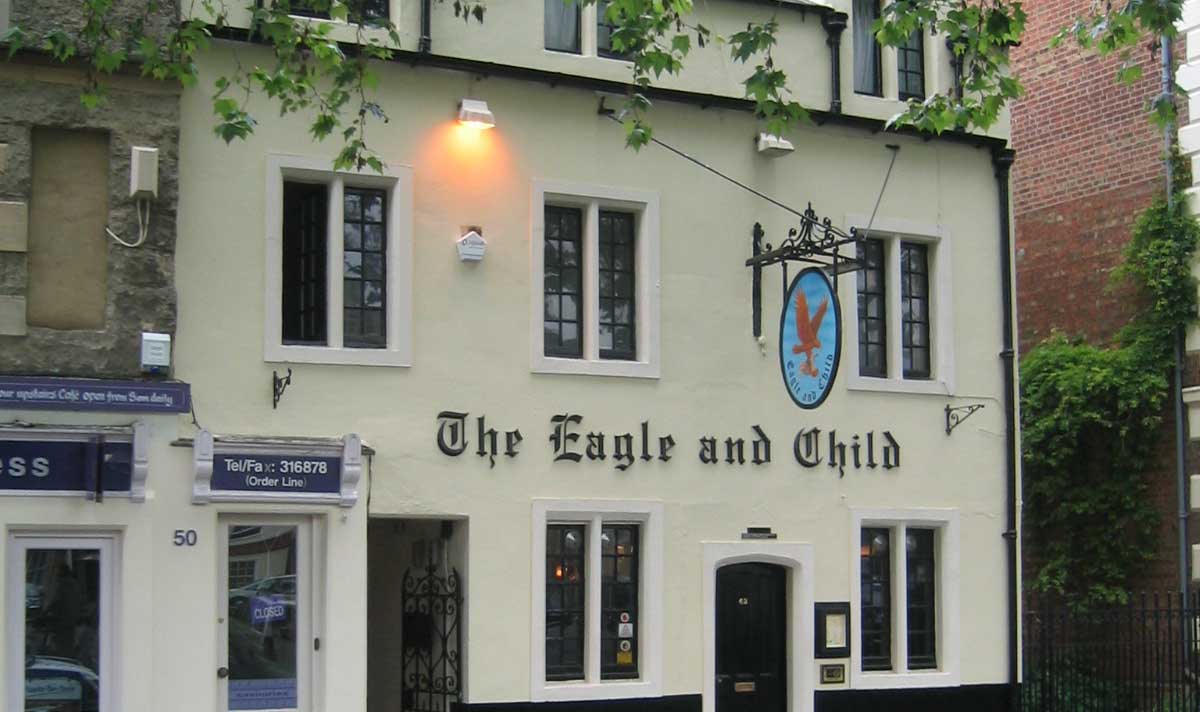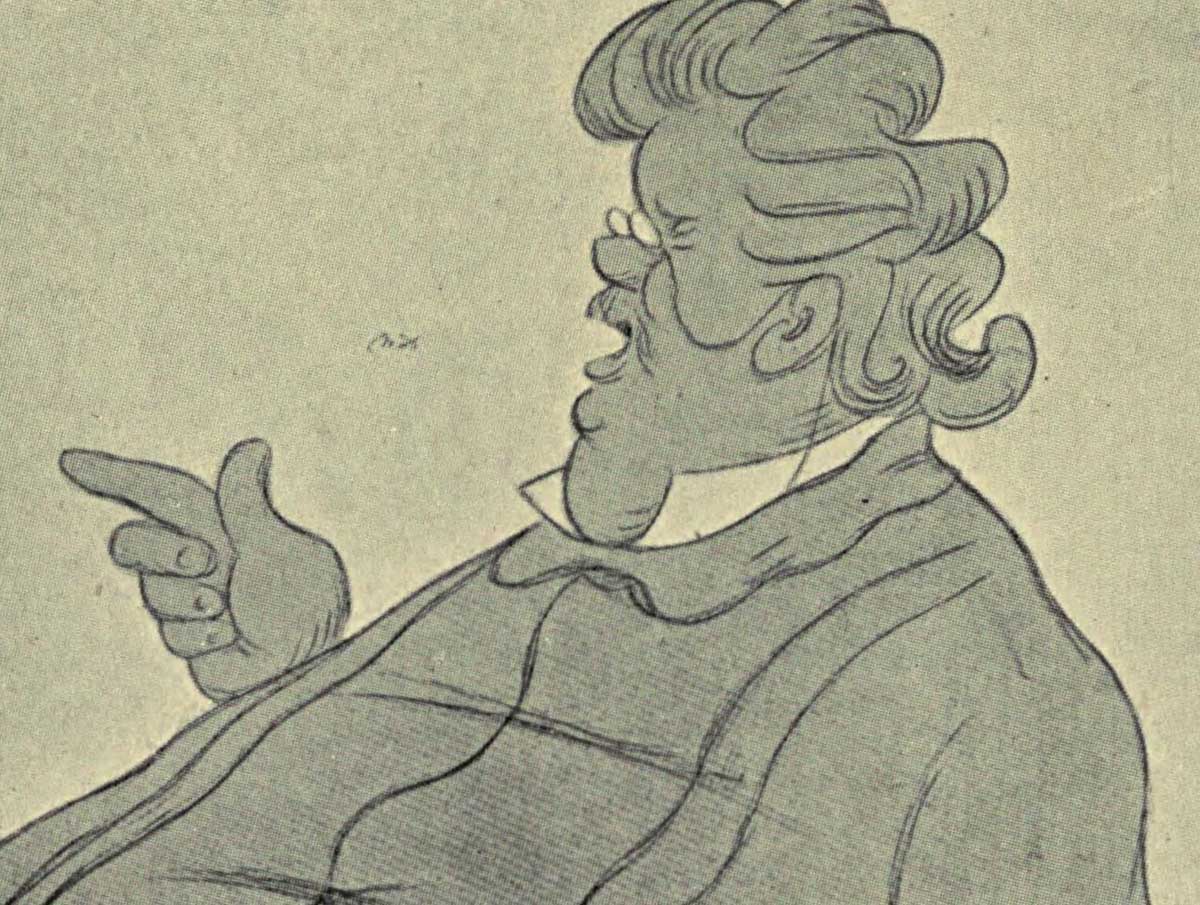Parting with Our Bodies
Louis R. Tarsitano on the Harvesting of Organs
I hate to be a cliché, but I only read Playboy for the articles, and not in the magazine itself (no naughty pictures, thank you—I have a daughter, and if nothing else, the Golden Rule restrains me from doing to another man’s child what I would hate to have done to my own). On the other hand, when a Playboy article circulates on the Internet, my attitude is “type is type,” and it is interesting to see what the readers of that particular magazine are pondering.
Settling the Matter
A friend e-mailed me an article by Steve Salerno from this October’s Playboy, “The Heart-Stopping Truth about Organ Donation.” To be clear, the organs in question are hearts, kidneys, livers, and so forth. The relevance to Playboy’s readers, as Mr. Salerno reports, is that “According to the Centers for Disease Control, the mortality rate due to injury among men 18 to 35 years old is about twice that of the national average.” In other words, organ-procurement organizations (OPOs) are “waiting for you to do something stupid. In fact, they’re counting on it.”
It might seem that living hard and taking one’s chances, capped by the altruistic donation of no-longer-needed organs, would be a good fit with the “Playboy philosophy,” but Mr. Salerno’s point is rather more dire. After a catastrophic accident, the organ transplant people “must get to the hospital fast, before your internal organs go stale. And if you’re not quite dead when they get there, they may just go ahead and take your liver and kidneys and heart, settling the matter once and for all.”
But what about those solemn scenes in television medical shows, where a patient is declared “brain dead,” and a tearful family grants permission for his organs to be harvested for transplant, taking comfort that some good can come from tragedy? Salerno offers a different point of view: “One popular belief peddled by the transplantation community is that brain death is as much a bedrock medical concept as conventional cardiac death. By those terms, a brain-dead patient is dead. Period. In fact, brain death is an expedient ‘medical fiction,’ to use Stuart Youngner’s phrase, invented to enable physicians to declare patients dead in a timely fashion and in a controlled environment.”
People whose organs are failing them want to live, of course, but their desire to live is not the only factor behind the increasing demand for transplantable organs. Not surprisingly, doctors and hospitals gain prestige and funding for their organ transplant programs when they perform successful transplants. And the fresher the organs, the better chance there is of success. The need to succeed can overwhelm other considerations of common sense or of science: “Tellingly, most hospitals now regard electroencephalograms (which determine the presence of brain waves) and cranial blood-flow studies as ‘ancillary’ procedures. Neither is necessary for a formal finding of death. Of the many criticisms lodged against brain-death standards, absence of these confirming diagnostic steps is the most serious.”
There is more to the story, though, than the omission of rather ordinary tests. There is also a disregard for the evidence of the senses, as well as a dismissal of human sensibilities. Salerno rounds out his discussion with a horror story: “Anesthesiologist Philip Keep told the BBC that ‘nurses get really upset. You stick the knife in [into a patient whose organs are being removed], and the pulse and blood pressure shoot up.’ In an effort to squelch such disturbing manifestations, many British hospitals administer anesthesia prior to harvest. As Dr. Keep noted (without apparent irony), ‘If you don’t give anything at all, the patient will start moving and wriggling around and it’s impossible to do the operation.’”
As the lawyers (who are also involved in the transplant business, some to minimize and some to maximize the number of lawsuits involved) might observe, hard cases make bad law. And death is the ultimate hard case.
Watching People Die
Back in 1976, only nine years after Christiaan Barnard had done his first successful heart transplant, I did my Clinical Pastoral Education term at a Roman Catholic hospital in Illinois. The hospital was the local trauma center, it was summer, and the hospital slang for motorcycles had already become “donor-cycles.” I was assigned as chaplain to Intensive Care/Coronary Care (one big general unit in those days) and to a few of the other grimmer hospital departments because I was a “conservative” and the assumption was that this sort of thing would magically transform me into a liberal.
Louis R. Tarsitano (d. 2005), a former associate editor of Touchstone, was a priest of the Anglican Church in America and rector of St. Andrew?s Church in Savannah, Georgia. He also was the co-author, with Peter Toon, of Neither Archaic Nor Obsolete: The Language of Common Prayer & Public Worship (Brynmill Press, Ltd., 2003).
subscription options
Order
Print/Online Subscription

Get six issues (one year) of Touchstone PLUS full online access including pdf downloads for only $39.95. That's only $3.34 per month!
Order
Online Only
Subscription

Get a one-year full-access subscription to the Touchstone online archives for only $19.95. That's only $1.66 per month!
bulk subscriptions
Order Touchstone subscriptions in bulk and save $10 per sub! Each subscription includes 6 issues of Touchstone plus full online access to touchstonemag.com—including archives, videos, and pdf downloads of recent issues for only $29.95 each! Great for churches or study groups.
Transactions will be processed on a secure server.
more from the online archives
calling all readers
Please Donate
"There are magazines worth reading but few worth saving . . . Touchstone is just such a magazine."
—Alice von Hildebrand
"Here we do not concede one square millimeter of territory to falsehood, folly, contemporary sentimentality, or fashion. We speak the truth, and let God be our judge. . . . Touchstone is the one committedly Christian conservative journal."
—Anthony Esolen, Touchstone senior editor










